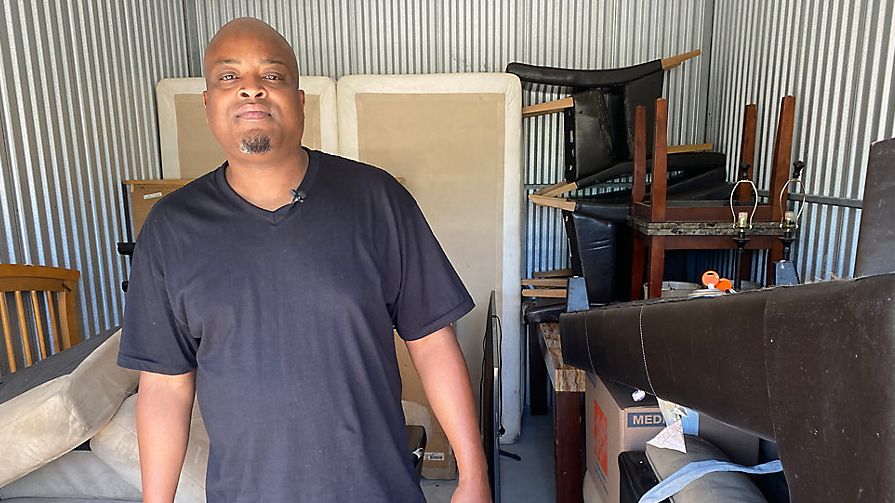CFPB warns against reporting inaccurate eviction information
As the end of the federal eviction moratorium approaches, the Consumer Financial Protection Bureau is warning landlords and consumer reporting agencies that they will be held accountable for providing inaccurate, incomplete, or misleading rental information about tenants, including eviction information.
What you need to know
- The CFPB warns landlords and consumer agencies against submitting inaccurate information about evictions
- Prior to the pandemic, it was found that 22% of eviction records misrepresent a tenant’s eviction history or are ambiguous
- If you need help finding a home, check out our updated list of housing resources in Central Florida
The bulletin, released on Thursday, contains some pre-existing concerns about standard methods of screening tenants that the agency fears the pandemic may only have gotten worse.
One of those concerns is the fact that, in general, if an eviction is requested against them, specific details about the case and outcome will not be included in that person’s consumer report. In other words, registration authorities and landlords only see that someone has been evicted – but they don’t see why or under what circumstances, including whether the eviction was related to COVID-19.
“The office is concerned that evictions and rent arrears information related to the impact of the pandemic may not be a reliable indicator of future performance for a consumer given the magnitude of the economic upheaval caused by the pandemic,” the CFPB bulletin said.
An eviction on your file will seriously hinder your ability to find safe and stable housing in the future. However, an analysis of millions of eviction files in 2019 filed in 12 different states found that an average of 22% of eviction files either contained ambiguous information about how the case was resolved or misrepresented a tenant’s eviction history.
Lar’Shemore Morton says he’s just one example of why current tenant screening systems need to change.
After recently being evicted from his Melbourne, Florida apartment, Morton says he has already been turned down by five rental units. He paid between $ 50 and $ 75 in non-refundable fees for each application.
“If (landlord) goes to the courthouse and files an eviction, it hits your file right away,” Morton said.
He says he is lucky enough to be able to stay with his sister temporarily, knowing that many other people in his position do not have this option.
“I’ve learned that if you don’t have support, you will become homeless,” said Morton. “You will be in a forest or a tent, in someone’s backyard.”
“My heart goes to all of the people who had no place,” he said.
Morton said his previous job laid him off for 10 months during the pandemic, and he had previously received emergency help with the Brevard County rental. But his lease had expired in early January – and Morton’s landlord had no plans to extend their contract without his knowledge.
“I tried to give her the money, but she didn’t take it. She said my lease had expired, “said Morton.
Morton added that the county would not allow him any further rental support without a current lease. According to a June report by the National Low Income Housing Coalition, most rental assistance programs require applicants to provide evidence of a current rental contract.
This documentation requirement “has the potential to exclude tenants in informal tenancies or whose tenancy agreements have expired and who could be exposed to a high risk of eviction,” according to the report.
The NLIHC sponsors rental assistance programs that allow applicants to self-validate their rental, income, and rental assistance histories. Reducing documentation requirements in this way will help provide faster and more effective aid to the most vulnerable people at risk of losing their homes, according to NLIHC, which has some examples on its website of how local programs enable self-certification can.
During the pandemic, rental emergency aid only slowly reached those in need. State and local programs have distributed only a very small fraction of the billions of dollars the federal government has allocated to rental subsidies.
Morton is now re-employed at another company and is focused on getting back on his feet – and sharing his story with other people who may be in his position in the hopes that it can help someone else.
“If you haven’t saved a lot of money, it’s hard to survive in the state of Florida,” said Morton. “They drive you around, they drive you after you. So you always need to have an exit plan. And a lot of people don’t have an exit plan. “
Molly Duerig is a Corps member on Report for America, which covers affordable housing for Spectrum News 13. Report for America is a not-for-profit national utility that places journalists on local newsrooms to cover undercover issues.



Comments are closed.